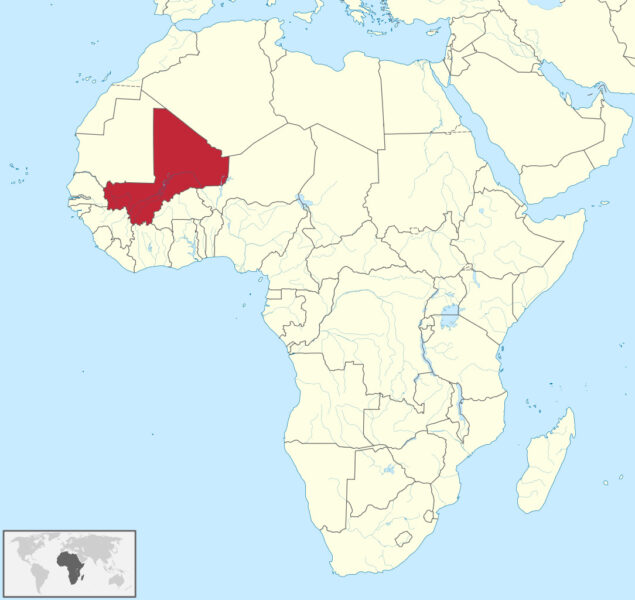Last Sunday, the Economic Community of West African States (E.C.O.W.A.S.) announced new economic sanctions to be imposed on Mali’s transitional authorities in response to a proposal to postpone the country’s February 2022 elections to 2025. The additional sanctions include members’ closure of land and air borders with Mali, a freeze of all non-essential financial transactions, and freezing Mali’s state assets in E.C.O.W.A.S. central and commercial banks. E.C.O.W.A.S. ambassadors were also withdrawn from Mali. These sanctions are intended to pressure the military-led government to reconsider its proposal of delaying elections to 2025. However, these new sanctions may also affect civilians.
The military-led government said elections cannot be held in February 2022 due to the ongoing Islamist insurgency that is threatening the progress of a peaceful election.
The additional sanctions from E.C.O.W.A.S. received much support from the international community. In a U.N. Security Council meeting, Mali’s former colonial power, France –represented by France’s ambassador to the U.N. Nicolas de Riviere – stated its “full support for E.C.O.W.A.S.’s efforts.” Senegal and Ivory Coast also followed suit by cancelling flights to Mali.
Mali’s military leader Assimi Goita voiced his disappointment in the additional sanctions, describing E.C.O.W.A.S.’s decision as “illegitimate, illegal and inhumane.” The military-led government also closed its borders and issued the withdrawal of its ambassadors from the E.C.O.W.A.S. member states and promised to “retaliate” against actions that will “affect populations already severely affected by the security crisis and the health crisis.” However, in a national T.V. address, the military leader stated that Mali is still “open to dialogue with the Economic Community of West African States to find a consensus.”
Goita came into power after staging two coups within just nine months. The first, in August 2020, overthrew then-president Keita after months of protests demanding he steps down due to corruption and his failure to end the fighting against the Islamist militias. Goita then became vice president to interim president Bah Ndwa and, after international pressure, promised to hold an election in February 2022. In May 2021, Goita then staged his second coup, arresting Ndwa and Prime Minister Moctar Ouane after accusing them of sabotaging the transition to civilian rule. Goita became interim president and reiterated his promise for a February 2022 election, but made little attempt to organize votes and frequently suggested that ongoing insurgency might delay the vote. Hence, the international community sees Goita’s latest proposal to delay elections as the military’s attempt to remain in power.
Coup d’état as a tool to change political leaders is unconstitutional and unacceptable. The sanctions from E.C.O.W.A.S. can be seen as Africa’s commitment to retaining democracy on the continent. However, the newly-imposed sanctions’ effects on civilians should not be ignored. A report from Al Jazeera’s Nicolas Haque shows that there is a sense of “panic and anger” in Mali’s capital as civilians rush to “banks, petrol stations, and markets for provisions.” Activist Evelyne Zeinab Jacques also told Al Jazeera that “Mali won’t be able to withstand the latest sanctions.”
Mali is a “landlocked country dependent on our neighbours,” Jacques said. “We don’t have access to the ocean we need the ports of Senegal and Ivory Coast to get goods in our country. For business owners the economic sanction is suicidal.”
Sanctioning Mali alone will not solve its economic instability or Islamist militant insurgency. E.C.O.W.A.S. and other international bodies should consider the impact sanctions have on Malian civilians and look for other alternatives through dialogue to ensure a peaceful election and an end to the insurgency. Imposing sanctions that affect civilian lives in a country with an already struggling economy may lead to catastrophe.
- Does The D.R.C. Need More Troops, Or More Commitment To Peaceful Talks? - March 26, 2023
- Malians Don’t Deserve To Be Sanctioned - November 15, 2022
- France And European Allies To Withdraw troops from Mal - March 3, 2022


